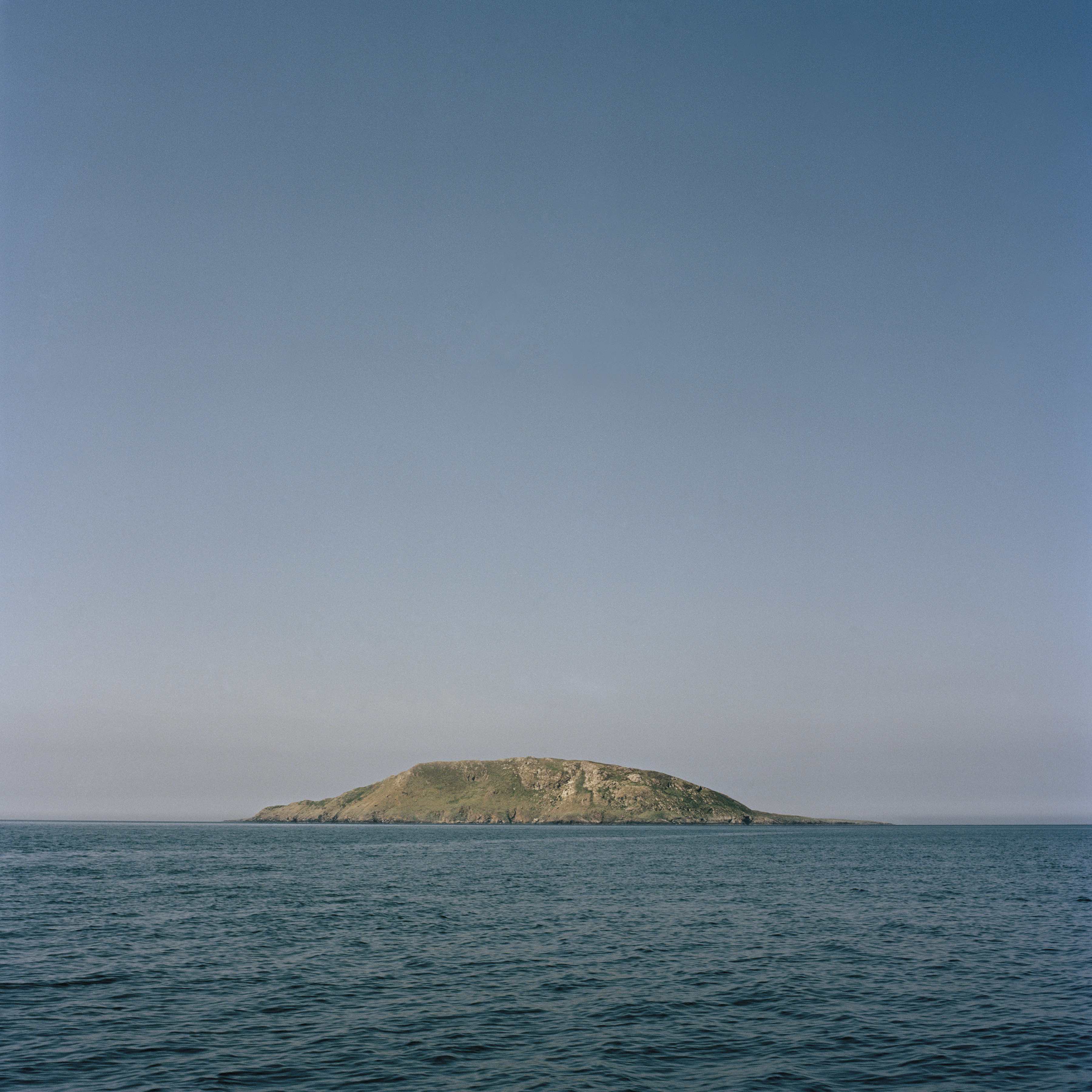Meet the gatekeepers who watch over Britain’s islands
- Text by Niall Flynn
- Photography by Alex Ingram

Having grown up in St Davids, Pembrokeshire – the UK’s smallest city – photographer Alex Ingram understands what it’s like to live in a tiny community.
However, St Davids’ population of 1,841 dwarfs those explored in The Gatekeepers, the London-based photographer’s ongoing project. The series, which he started shooting last year, sees him visit the remote islands scattered off the UK coast, spending time with the lone ‘wardens’ that watch over them.
With limited access to the mainland and tasked with the responsibility of preserving the islands for future generations, the titular gatekeepers – most of whom come from scientific backgrounds – live their lives in extreme isolation.
 “I’m a very nosy person, and I use photography as a tool that enables me to enter into people’s lives and to tell their stories,” he explains. “The wardens lives are so different to my own life in London, and there is almost a sense of escapism involved.”
“I’m a very nosy person, and I use photography as a tool that enables me to enter into people’s lives and to tell their stories,” he explains. “The wardens lives are so different to my own life in London, and there is almost a sense of escapism involved.”
“Visiting these tiny, remote islands is like a journey into another world that I am completely fascinated by. I want to question and explore the way that the wardens have adapted to living in such remote locations and how they overcome the daily obstacles that living in a place like that throws at them.”
 So far, the ongoing long-term project has covered four islands: Skomer, Lundy, Bardsey & Skokholm. He has spent at least a week on each, observing and photographing the wardens as they oversee the daily upkeep of their surroundings, as well as conducting research in the delicate ecosystems and wildlife that share their home.
So far, the ongoing long-term project has covered four islands: Skomer, Lundy, Bardsey & Skokholm. He has spent at least a week on each, observing and photographing the wardens as they oversee the daily upkeep of their surroundings, as well as conducting research in the delicate ecosystems and wildlife that share their home.
For Ingram, the isolated existence – off-grid, stripped-back, truly remote – operates as an antidote to the ills of modern life. Away from the sweaty commutes, passive-aggressive emails and four-hour meetings, The Gatekeepers depicts a lonely life. But equally, a far simpler one.
 “Having spent the past year living with the wardens on these islands and experiencing first hand what it’s like living there and how they have adapted to their isolated environment has made me reevaluate the things I have in my life.”
“Having spent the past year living with the wardens on these islands and experiencing first hand what it’s like living there and how they have adapted to their isolated environment has made me reevaluate the things I have in my life.”
“Sure, I’m not going to suddenly get rid of all the gadgets that I have in my house that make my life easier, but I have a new appreciation of what I do have, and I’m certainly not going to be queuing up for the next iPhone to be released!”







 See more of Alex Ingram’s work on his official website.
See more of Alex Ingram’s work on his official website.
Enjoyed this article? Like Huck on Facebook or follow us on Twitter.
You might like

Remembering New York’s ’90s gay scene via its vibrant nightclub flyers
Getting In — After coming out in his 20s, David Kennerley became a fixture on the city’s queer scene, while pocketing invites that he picked up along the way. His latest book dives into his rich archive.
Written by: Miss Rosen

On Alexander Skarsgård’s trousers, The Rehearsal, and the importance of weirdos
Freaks and Finances — In the May edition of our monthly culture newsletter, columnist Emma Garland reflects on the Swedish actor’s Cannes look, Nathan Fielder’s wild ambition, and Jafaican.
Written by: Emma Garland

Katie Goh: “I want people to engage with the politics of oranges”
Foreign Fruit — In her new book, the Edinburgh-based writer traces her personal history through the citrus fruit’s global spread, from a village in China to Californian groves. Angela Hui caught up with her to find out more.
Written by: Angela Hui

Meet the hair-raised radicals of Berlin’s noise punk scene
Powertool — In his new zine, George Nebieridze captures moments of loud rage and quiet intimacy of the German capital’s bands, while exploring the intersections between music, community and anti-establishment politics.
Written by: Miss Rosen

Southbank Centre reveals new series dedicated to East and Southeast Asian arts
ESEA Encounters — Taking place between 17-20 July, there will be a live concert from YMO’s Haruomi Hosono, as well as discussions around Asian literature, stage productions, and a pop-up Japanese Yokimono summer market.
Written by: Zahra Onsori

We are all Mia Khalifa
How humour, therapy and community help Huck's latest cover star control her narrative.
Written by: Alya Mooro